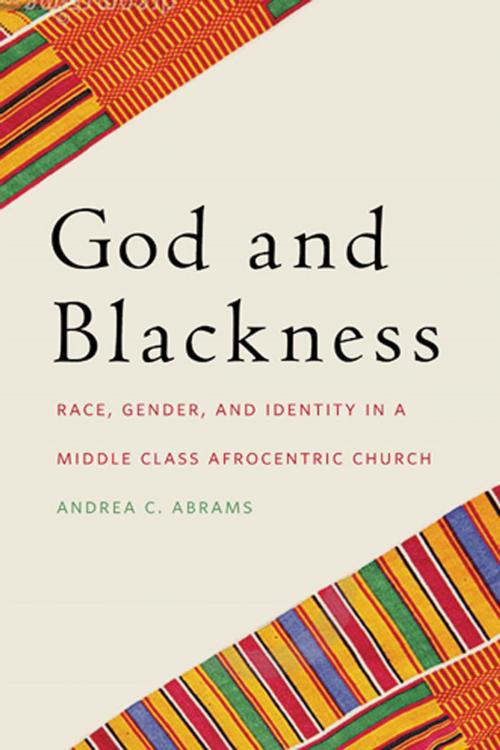God and Blackness
Race, Gender, and Identity in a Middle Class Afrocentric Church
Nonfiction, Social & Cultural Studies, Social Science, Discrimination & Race Relations| Author: | Andrea C. Abrams | ISBN: | 9780814705261 |
| Publisher: | NYU Press | Publication: | March 21, 2014 |
| Imprint: | NYU Press | Language: | English |
| Author: | Andrea C. Abrams |
| ISBN: | 9780814705261 |
| Publisher: | NYU Press |
| Publication: | March 21, 2014 |
| Imprint: | NYU Press |
| Language: | English |
Blackness, as a concept, is extremely fluid: it can refer to cultural and ethnic identity, socio-political status, an aesthetic and embodied way of being, a social and political consciousness, or a diasporic kinship. It is used as a description of skin color ranging from the palest cream to the richest chocolate; as a marker of enslavement, marginalization, criminality, filth, or evil; or as a symbol of pride, beauty, elegance, strength, and depth. Despite the fact that it is elusive and difficult to define, blackness serves as one of the most potent and unifying domains of identity.
Blackness, as a concept, is extremely fluid: it can refer to cultural and ethnic identity, socio-political status, an aesthetic and embodied way of being, a social and political consciousness, or a diasporic kinship. It is used as a description of skin color ranging from the palest cream to the richest chocolate; as a marker of enslavement, marginalization, criminality, filth, or evil; or as a symbol of pride, beauty, elegance, strength, and depth. Despite the fact that it is elusive and difficult to define, blackness serves as one of the most potent and unifying domains of identity.















